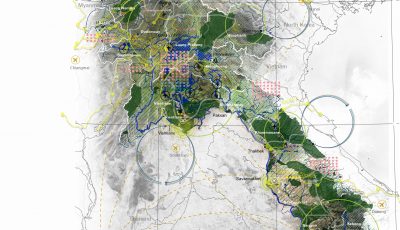There are two approaches to reducing emissions from deforestation and forest degradation (REDD+) that to date have largely progressed in parallel. This study differentiated the two approaches and compared the methodologies which are used to account for their carbon impacts.
The first approach includes activities that take a land-use accounting approach to achieve REDD+ outcomes. They account for emissions reductions from a specific location from within a forest. It includes voluntary and compliance carbon market projects as well as international and multilateral approaches that have been traditionally labelled as ‘REDD+’.
The second group of activities use non-land-use accounting approaches to deliver REDD+ outcomes. These activities aim to address the drivers of deforestation and forest degradation through e.g. a reduction in demand for fuel wood or ensuring that fuelwood is sustainably sourced. This second group does not take into account the emissions reductions from a specific location within a forest and have traditionally been labelled as energy efficiency or fuel switching projects.
The objective of this analysis was to identify and rank this second group of projects that, while achieving REDD+ outcomes, are based in non-land-use accounting approaches. The selected 26 methodologies have been ranked based on four criteria:
- Criterion 1 looks at financial feasibility, encompassing three performance figures derived from registered projects that use the specified methodology;
- Criterion 2 captures the robustness of the potential REDD+ outcome by qualitatively assessing how accurately the methodology addresses REDD+ relevant issues such as leakage, permanence and additionality;
- Criterion 3 looks at the technical feasibility of the methodology and is based on the issuance success rate of registered projects under this methodology;
- Criterion 4 reflects the REDD+ mitigation potential of the methodology.
In conclusion, the methodologies with the strongest REDD+ outcome are:
- Gold Standard Methodology: “Technologies and Practices to Displace Decentralized Thermal Energy Consumption”,
- CDM AMS-I.E.: Switch from non-renewable biomass for thermal applications by the user,
- CDM AMS-I.D.: Grid connected renewable electricity generation,
- CDM AMS-II.G.: Energy efficiency measures in thermal applications of non-renewable biomass,
- American Carbon Registry Methodology: “Energy efficiency measures in thermal applications of non-renewable biomass”.
Client: KfW
Partner: (as a shareholder of Climate Focus)
2012-2013



